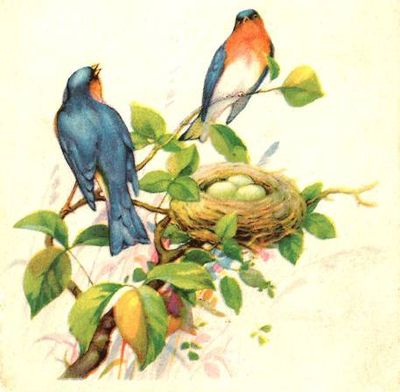Breaking ground on a new story

The first big trucks rolled down the street while I was pouring a cup of coffee and within minutes the rumbling began. The sound of crashing and falling debris grew louder and I looked out the window to see my neighbors standing on porches and sidewalks. Curious, I stepped out as well.
A big excavator was taking big bites out of a little house, knocking down walls and crumpling the wood framing. The plain little house was built just as the U.S. entered World War II and was one of the earliest, if not the first, houses on that street.
It was obvious that as time and money had allowed, the house had been remodeled with small additions tacked on. The double lot was planted with flowering trees and judging from the feeders left behind after the man and then the woman who’d lived there had passed away, it had been a haven for wild birds in the 75 years they’d been there.
But the house had structural problems, some severe enough to keep buyers away. I’d watched the ‘SOLD’ sign go up and then come down as deals fell through.
It is always bittersweet to see any place that has been a home, the kind of place where people were once sheltered and loved, come down. But time had not been kind to the boxy little house. The repairs necessary to make it solid again would cost more than the structure was worth.
As I stood there chatting with neighbors, a woman walked up and introduced herself as the new owner. She explained that she and her husband were taking down the broken little house and replacing it with two new homes, one of which would be their own.
She seemed concerned that the neighborhood would see the demolition as a cavalier act—out with the old and in with the new, history be damned—but as far as I could tell, no one disagreed that the house had been too tired to save.
It disappeared quickly. The excavator removed all the debris and by late afternoon only the foundation remained. Just before the sun set, I walked over to the site and as I stood there looking down into what had been the basement, the new owners drove up. I apologized for trespassing but they didn’t seem to care. They showed me the things about the lot that had drawn them and then the man reached out and took my arm.
“I want to show you something,” he said.
We walked over to a concrete pillar at the edge of a flower bed. It had held a sundial which had “disappeared” at some point while the house was on the market.
Noticing the theft, the new owner had walked over and looked down into the hollow pipe and pulled out a handwritten letter sealed in a plastic bag. It had been written by the woman who’d lived there for so long, describing the happiness she’d known in the little house, and then hidden under the sun dial. They’d sent the letter to the woman’s daughter as a memento of her childhood home and her parents.
I thanked them for sharing the story and had turned to walk back home when I noticed what remained of a bird’s nest in the branches of an ornamental tree next to where the house had stood.
The fragile nest had been battered by wind and weather and was no longer in any shape to hold a family. But the branch beneath it is still solid. Eventually, another bird will come along and see the potential and build a new nest. Just the way the broken ground that will once held a house will do so again. And the cycle will go on.
Cheryl-Anne Millsap is the author of “Home Planet: A Life in Four Seasons ” and can be reached at catmillsap@gmail.com
* This story was originally published as a post from the marketing blog "Home Planet." Read all stories from this blog